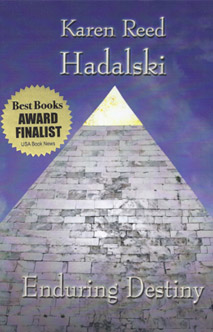My new book, Ten Difficult Women: Their Impact and Legacy, is now available for pre-release sale and will be officially released on November 19.
While the new release of every book is exciting, I find myself wondering how many people actually read books these days? My favorite chain bookseller, Borders, recently closed its last door and I’ve read that Barnes & Noble is struggling. Though independent–especially specialty –bookstores seem to be holding on, I wonder how? Those I frequent are almost always empty.
To me, there is no contest between the feeling one gets holding and reading a printed book vs. a metal reading device. Yet, a young family member tells me she is certain electronic books will be the only form around in the not too distant future. She went from printing to keyboard in elementary school, views cursive writing as an “archaic folk art” with no practical purpose, and was totally unimpressed by ancient hieroglyphics and the Book of Kells when taken to see these. “Who cares how ideas are written out,” she questions? ” Only the stories and ideas are important.”
Those in the 20-something generation must view people in my generation as crazy. Many of us (including Bill & Hillary Clinton) still write long-hand versions of our works on legal pads before entering them into the Word program. I write everything out with a favorite (refillable) pen. The ideas and words flow like a tangible current from my brain, through my arm, to my hand, and “exit” through my pen onto a soft, woody piece of paper. This process feels organic to me and somehow works to make my ideas feel alive and personal. Once relegated to a documents file in my computer, those warm, pulsating words become nothing but cold, hard “copies” to me.
One of my fondest graduate school memories is of spending an afternoon in Harvard University’s Rare Book Room. I was only allowed access because I was working as a Research Assistant to a professor writing a biography of Ralph Waldo Emerson, my favorite essayist. I was escorted to a small ” book closet” with a cage-like door and given a pair of white cotton gloves to wear. My assignment was to cross-check the accuracy of several handwritten journal entries and notes he wrote in the margins of his own essays and the works of his favorite classical authors.
I had read every word this genius wrote and visited his home, personal library, and grave site in Concord, Massachusetts. But nothing conveyed a more intimate, living-breathing “feel” for the man than holding and reading his handwritten journals, marginalia, and doodling. After all, these flowed directly from his mind, through his pen, to the pages I now turned. Wow!
That experience could never have occurred had he typed his words with a keyboard, printed them out, and converted them to an electronic reading device.
Maybe the kids are right and books will cease to be printed before long. Regardless, I will always be a bibliophile. One of my favorite Emersonian quotes is: “A room without books is like a body without a soul.” I agree–cracked leather, yellowing pages, musty smell and all.



